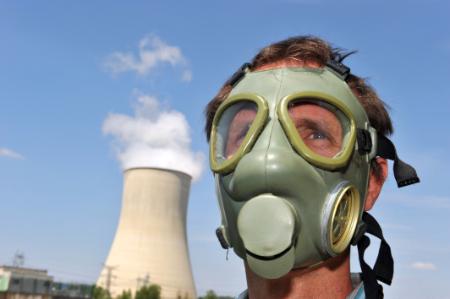|
We can’t use terms like “inclusive” and “green” as window dressing for the pursuit of economic growth as an end in itself. A real and profound change in how we think about growth is needed–one that doesn’t let special interests get in the way of creating a just, fair and sustainable economy with clean energy for all.
No question–we have made some progress since the dark days of the Washington Consensus. The World Bank has raised the alarm over the difficulty of ending poverty in a world that could become 4°C warmer than preindustrial levels. And the OECD is now calling for inclusive and green growth–an acknowledgement of the need to deliver for all, not just the few, and to not exceed planetary boundaries.
Sadly, we are still losing the planet. And this is all happening while private and multilateral development banks continue to invest in coal-fired power plants, fuelling the very problems they so starkly highlight. The OECD’s Green Growth Strategy similarly fails to address the planet’s problems with sufficient urgency. Climate-damaging emissions in 2011 reached yet another all-time high. The current model of economic growth continues to depend on ever-growing levels of material and energy consumption. This is simply unsustainable on a planet with finite resources. Humanity’s ecological footprint is currently 44% above the planet’s capacity to replenish renewable resources and absorb pollution and waste. This already has profound social and environmental consequences for the livelihoods of millions of people and threatens our security and future survival.
We at Greenpeace are excited when economic prosperity and protecting the planet go hand in hand. We know that a lot of economic growth can indeed be delivered, especially for the poorest communities, “while ensuring that natural assets continue to provide the resources and environmental services on which our well-being relies”, as the OECD’s Green Growth Strategy puts it. That’s why Greenpeace has worked with business partners to develop the Energy [R]evolution scenario, which is built on the idea of investing in energy efficiency and renewable energy, and not in fossil fuels and nuclear power. Implemented globally, the Energy [R]evolution could deliver sustainable energy to all, cut emissions by more than 80% by 2050 and create more jobs. We estimate that governments could help businesses create 3.2 million more jobs by 2030 in the power supply sector alone. It could also wean us off oil, making expanding the oil frontier to places like the Arctic look like the madness it is.
Unlike the OECD, however, we at Greenpeace do not argue that everything can be “win-win”. We know, for example, that historically, efficiency savings have been eaten up by increased consumption. While the OECD’s Green Growth Strategy may be a step forward from previous OECD strategies, we believe it still fundamentally fails to address our problems at the scale and speed needed. One key problem, we believe, is that the OECD still reifies growth as an end in itself, even though this is the exact model that has failed us.
We need to change our thinking. We need to accept and agree firm ecological boundaries within which the economy must operate and ensure the fair distribution of available resources. Indeed, we need to treat the economy as a tool. In a just “green” economy worthy of the name, the economy would be the mechanism we used to deliver societal goals–economic growth as an end goal in and of itself would be abandoned.

Another thing that urgently needs to be abandoned is harmful subsidies. When you are digging a hole for yourself, the first step towards the solution is to stop digging. The OECD has a long history of calling attention to the fact that too much public money is wasted on societal wrongs, industries or modes of transport that fuel climate change or the overexploitation of our seas. However, OECD governments have completely failed to lead on eliminating harmful subsidies that their own institution calls for. OECD countries are spending many times what they have pledged to help the poor deal with climate change on lining the pockets of the fossil fuel industry, which is already earning record profits. Canada, for example, spends eight times more on fossil fuel subsidies than on climate finance. This is worse than hypocrisy; this is stealing from our future. Ending harmful subsidies is one key indicator as to whether governments are serious about sustainability or not.
Talking of indicators–given that governments called for better, more effective measurements of wealth both at Rio in 1992 and once again at Rio+20–we are disappointed that the OECD’s green growth indicators fail to provide the guidance needed. For a start, we believe the OECD model does not take into account the full economic and environmental costs of inaction. While we acknowledge that one single indicator may be difficult to achieve, or even unhelpfully abstract, the OECD’s current shopping list of about 20 “headline” indicators is clearly insufficient, as it fails to rule out what is no longer acceptable–such as pursuing nuclear power or continuing to invest in coal. The fact that countries like Korea can adopt these indicators while expanding expensive, dangerous and unsustainable nuclear power is one sign that the indicators are simply not telling enough of the story.
Sustainability is as much about what is no longer acceptable as it is about the “green” technologies we need to invest in. An economy based on nuclear energy, oil, coal and gas, genetic engineering, toxic chemicals, or the overexploitation of our forests and seas will never be sustainable or green. It’s not enough to know if countries are improving compared to the past or not. We need to know if the rate of change is fast enough to bring us back to safe levels before it’s too late. Indicators that do not reflect that reality fail to provide real guidance on how to achieve economic development that does not cost the earth and delivers livelihoods and justice for all.
Moving forward, we must go beyond a black-and-white debate on growth. There has to be real meaning to words like “inclusive” and “green”. We can’t simply use these words as window dressing while simultaneously destroying our future. Otherwise, they will become as hated and opposed as the Washington Consensus was–and rightly so.
Some sectors–such as renewables–will need to grow, as indeed they are doing today. This is the case in the United States, where all the new generating capacity in September 2012 was renewable. Meanwhile, many people and communities will need more access to resources, land and money, especially in developing countries.
But overall GDP growth must not be a fetish, especially not in industrialised countries. Solutions exist and must be adopted and accelerated now. Our Energy [R]evolution is one revolution governments must not be afraid of. It needs to be implemented as a matter of urgency. We have no time to lose, and must not allow outdated thinking or special interests, like the fossil fuel industry, to stand in the way of the inclusion, justice and green jobs we need.
References and recommended sources
Greenpeace Energy [R]evolution
OECD-IEA fossil fuel subsidies and other support webpage
OECD work on environment
OECD work on green growth and sustainable development
OECD Forum 2013 Issues
More OECD Observer articles on energy
Subscribe to the OECD Observer including the OECD Yearbook
|
|

By Kumi Naidoo Executive Director, Greenpeace International
©OECD Yearbook 2013

|


